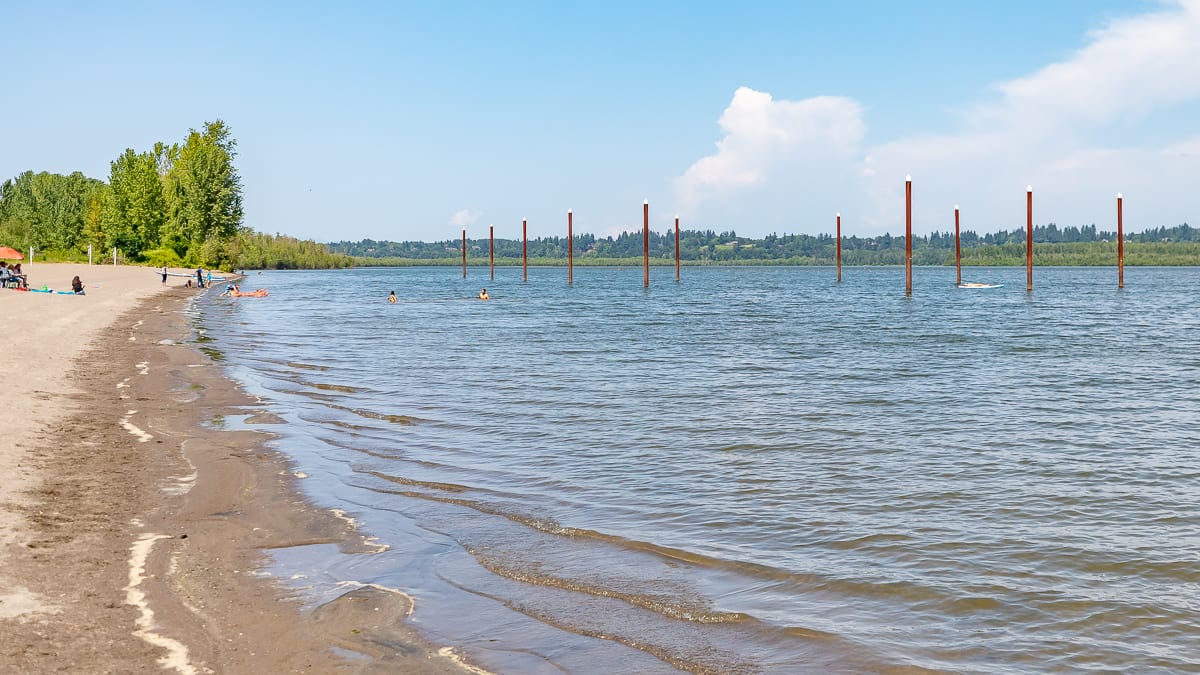Algae advisory downgraded from warning to caution
VANCOUVER — Clark County Public Health has lifted the swim beach closure at Vancouver Lake after recent test results showed reduced E. coli bacteria levels. Public Health has also downgraded the algae advisory at the lake from warning to caution. Blooms of cyanobacteria, also known as blue-green algae, are still present at the lake, but results from recent water samples indicate low levels of toxins in the water.
Vancouver Lake is considered safe for swimmers; however, people and pets should avoid direct contact with lake water in areas of blue-green-colored floating scum.

Public Health closed Vancouver Lake to swimming and wading on Tuesday after routine testing revealed elevated levels of E. coli bacteria in the water. Results from water samples collected Tuesday afternoon showed bacteria levels had dropped below US Environmental Protection Agency guidelines, prompting Public Health to lift the closure.
However, an advisory remains in place at Vancouver Lake for blue-green algae. Public Health issued a warning for the lake on July 12, due to elevated levels of cyanotoxins in the water. Results from water samples collected Monday indicated low levels of toxins in the water.
As long as algae are present, toxin levels could increase as conditions at the lake change. Public Health is advising people to avoid direct contact with water in areas with floating blue-green-colored scum. The toxins produced by blue-green algae can be harmful to people and deadly for small pets.
The warning signs at the lake will be replaced with caution signs, which will remain in place as long as the blue-green algae blooms are present. Public Health will continue to monitor the lake and take weekly water samples to test toxin levels.
Public Health will also continue routine monitoring at Vancouver Lake and the county’s other designated swim beaches – Klineline Pond and Battle Ground Lake – for E. coli bacteria.
Here are some steps swimmers can take to keep themselves and others healthy when enjoying local beaches:
- Rinse off before and after swimming.
- Don’t swim if you’ve had diarrhea or vomiting in the last two weeks.
- Keep children who are not toilet trained and require swim diapers out of unchlorinated water.
- Know where the bathrooms and changing stations are located.
- Take frequent bathroom breaks. Young children should be taken to the bathroom every hour.
Information about current advisories is posted on the Public Health public beaches website.




